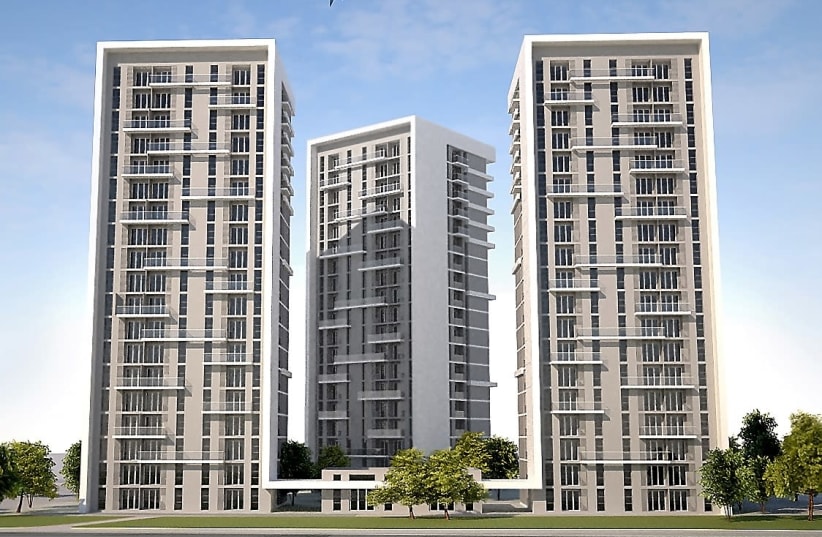The Consumer Price Index fell 0.1% in January, bringing inflation for the past 12 months to -0.4%, the Central Bureau of Statistics (CBS) reported Tuesday.
Housing prices rose 0.9% in the November-December period, indicating a 4% increase in the cost of apartments over the course of 2020.
The decline in CPI was less than analysts expected. It was led by lower prices for electricity, clothing and footwear, but it was mitigated by rising home and car prices, the CBS said.
Despite the higher-than-expected CPI, the Bank of Israel will likely keep the interest rate unchanged at 0.1% next week and continue to focus its activity on purchasing foreign currency, according to Ofer Klein, head of Harel Insurance and Finance’s Economics and Research Division.
Housing prices have jumped 4% over the past year due to a variety of recent actions by the central bank and the Treasury, including reduced mortgage interest rates, a reduction in the purchase tax for investors and the Bank of Israel’s allowance for households to defer mortgages to cope with the fallout from the economic crisis, he said.
Some 13,400 apartments were sold in December, the third-highest volume in history, the Finance Ministry reported last week. While sales declined in the first half of the year as pandemic fears scared away potential buyers, about 62,000 homes were sold in the second half of the year, the highest level in more than 20 years, it said.
The price of construction inputs rose 0.6% in January, as raw-material costs jumped due to sharp rises in world commodity prices, the CBS said. This trend will continue in the next two months and will affect apartment prices, Klein said.
Harel Insurance and Finance expects the February index to rise 0.1%, mainly due to higher fuel prices. The March index is expected to rise 0.3% due to a seasonal increase in food and recreation prices, it said. The forecast assumes that recreational activities will reopen as the vaccination drive helps bring the economy back to life.
For the next 12 months, Harel raised its inflation forecast slightly to 0.8%, noting that sectors such as aviation and tourism still have uncertainty surrounding them.
Meanwhile, Bank Hapoalim raised its 12-month inflation forecast to 0.9%, partly against the background of the continued rise in world oil prices.
“Rising inflation expectations have led to a widening of world yield curves,” said Victor Behar, director of Bank Hapoalim’s Economics Department. “Central banks are not expected to respond to rising inflation in the coming year. The rise in long-term yields expresses concern about a more aggressive response from central banks over a period of several years.”
